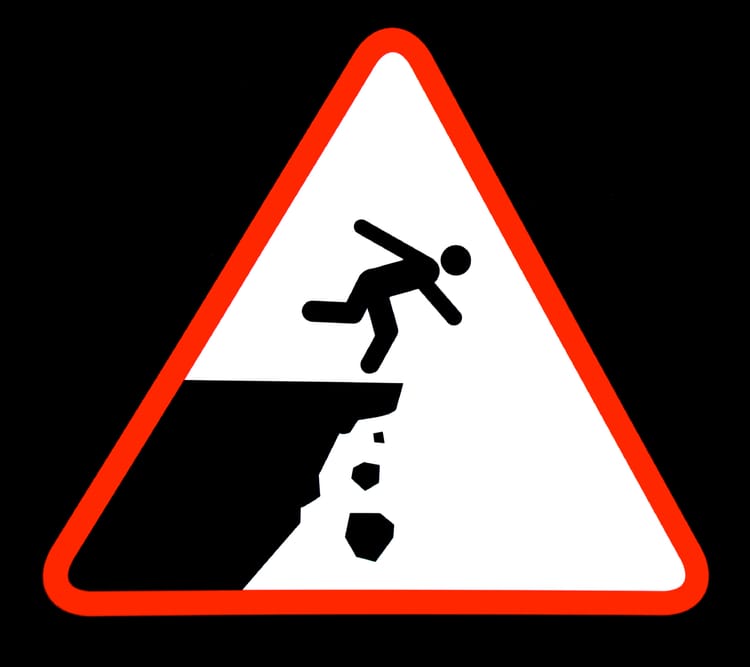Learning cultures and their leaders

Introduction
In my last two articles, I wrote about the relationship between culture and leadership. In the first, I described how societal culture profoundly influences what we judge as effective or ineffective leadership. In the second, I summarized a facilitation technique designed to build cross-cultural understanding within multicultural teams, created by former MIT professor Edgar Schein.
Before I drift away from the interrelationship of culture and leadership, I’d like to focus on one more theme highlighted by Schein in the final chapter of his influential book, ‘Organizational Culture and Leadership’ (one which I've leaned on in writing these last two posts).
In Schein’s final chapter, he asks a provocative question about the utility of organizational culture in an ever-changing world. He states that on one hand, culture is a force for stability, exerting conservative pressure to do things the way they’ve been done in the past, so that people can interpret their environments in predictable (and anxiety free) ways. In other words, culture provides continuity and comfort. He adds that business leaders generally believe having a strong culture – i.e., one that’s hard to change - is desirable.
And yet… Markets and the world of work are becoming more dynamic, assuming a cadence of perpetual change, rather than one of stasis.
Schein then asks, so what is the role of organizational culture, which is itself a stabilizing force, in a world that’s becoming more dynamic and demanding more adaptation?
Put another way, he asks what kind of culture should organizations create, to encourage needed adaptation to dynamic environments?
What kind of culture should organizations create, to encourage needed adaptation to dynamic environments?
Schein thinks increasingly in the future, organizations must adopt a ‘learning culture’ which values ongoing knowledge acquisition, reflection, and evolution. He suggests this constant learning will prepare them to enact ongoing change. By contrast, he writes, dismissing the importance of learning is risky, that “control-oriented organizations…” – i.e., ones that undervalue learning – “…may survive and even thrive in certain kinds of stable environments, but they are certain to fail as environments become more turbulent.”
In the next section, I’ll describe Schein’s definition of a learning culture in more detail. Then in the part that follows, I will explain how learning cultures demand unique skills from their leaders, like embracing fallibility and uncertainty to a greater extent than stereotypes of heroic corporate leaders would suggest.
What is a learning culture?
Schein says a learning culture has several attributes which all reflect deeply held assumptions about a) the nature of people (are they ‘good’ or ‘bad,’ can they change or not), b) the degree of agency the organization has in responding to their environment (can we master our environment vs not), and c) how to interact to uncover ‘truth’ or valuable information (open debate and communication vs not).
To Schein, these deeply held, unconscious, and unstated assumptions form the bedrock of every organizational culture.
The following are the assumptions Schein says typify a learning-focused organizational culture (I've captured the gist of each assumption in 'single quotes'):
- Proactivity: 'People can be proactive learners and problem solvers, and not just passive and fatalistic recipients of events in their environment.'
- Commitment to ‘learning to learn’: 'Learning is a valuable activity, and ‘learning to learn’ is a skill worth cultivating.' Flowing from this, a learning culture values feedback, reflection, and experimentation. It also permits errors. By extension, leaders in learning cultures allow themselves to ask for help and feedback.
- Positive assumptions about human nature: 'People are ‘good’ (not evil or selfish or lazy), and malleable, and they will learn if given the needed resources.'
- Belief that the environment can be managed: 'No matter how dynamic the conditions, the organization can respond in an adaptive way.' In his description of this assumption, Schein cites a 2016 book by O’Reilly and Tushman, titled ‘Lead and Disrupt,’ in which the authours find that companies that survived for long periods of time often retained their core businesses, and in parallel built new businesses. Presumably these organizations had a strong belief they could adapt to the changing conditions around them.
- Commitment to truth through inquiry and dialogue: 'Solutions and ‘truth’ emerge through dialogue.' This runs counter to the dogmatic and rigid idea that ‘truth’ resides in just one source or method. This also means leaders must admit the limits of their knowledge, and their lack expertise in some areas, to allow the ideas of others to enter the discussion.
- Positive orientation towards the future: 'The optimal time horizon for a learning organization is medium-term, somewhere between near and far.’ This differs from the short-term time perspective encouraged by quarterly public market reporting.
- Commitment to full and open communication: 'Information is a core resource at the organization, and anyone should be able to communicate and exchange it with anyone else.' As a corollary to this, a learning culture values telling the truth when communicating.
- Commitment to cultural diversity: 'Cultural diversity, having a range of subcultures, is an asset for an organization.' This is because subcultures can learn from one another and organizations can use that diversity to generate innovation. Schein would caveat this by adding that the leader’s key role in a mature organization is to actively guide the harmonious collaboration and peaceful coexistence of these subcultures.
- Commitment to systemic thinking: 'To support learning, members of the organization need to be capable of moving beyond simple, single-cause explanations for events, and visualize how multiple causes interact in complex ways.'
- Belief in the value of internal culture analysis: 'It’s valuable to reflect on and learn about one’s own culture.' This introspective skill creates understanding about how groups within the company interact.
Leadership skills for learning cultures
Schein’s vision of a learning culture implies the need for leadership skills that differ in major ways from the template of the conventional heroic corporate titan. In particular, he suggests learning cultures require leaders to show more receptivity, flexibility, inquiry, and humility than we might normally assume they must demonstrate.
For example, he suggests that leaders of learning cultures need to be highly receptive to the outside environment, and willing to change based on what they notice there, even if it challenges orthodoxy within the company. He describes learning leaders as both insiders and outsiders. They understand the inner workings of the company, but they're not so enamored with the culture that they discount external signals and data about the need to change. They are sensitive and receptive to outside information that encourages learning and adaptation.
As a second example, Schein also describes how leaders of learning organizations approach visioning with unique humility. It’s generally assumed that leaders first formulate a grand vision and then articulate it to followers as they convince others to join their cause. However, Schein says leaders in dynamic environments may need to be prepared to let go of their visions, and admit that the vision is totally wrong (!), if the world around them changes. He writes that perhaps we’ve become too obsessed with the notion of leaders visioning, as if they are the superhuman sole origin of the path forward, and we’ve ignored how leaders might invite valuable learning by admitting they don’t know everything, that the problem is more complex than they first assumed, and that they need help. This posture cuts against the grain of our romantic notions of leaders as hyper-confident, omniscient, and all-powerful figures.
In this engaging clip British Columbia-based venture capitalist Owen Matthews describes how great entrepreneurs possess learning-oriented leadership skills, including receptivity, flexibility, and humility.
Summary
To summarize, Schein’s position is that he advocates for an organizational culture that promotes constant learning and adaptation. At the same time, the leadership requirements to foster and perpetuate that culture, run counter to our stereotypical notions of how great corporate leaders act. Learning-focused leaders are humble about their knowledge and ignorance, willing to admit fault and uncertainty, interested in asking for help and seeking advice, able to acknowledge complexity and resist simple explanations, keen to engage in open dialogue, and willing to listen when others provide advice. Perhaps embracing a culture of learning and adaptation requires us to embrace a revised set of assumptions about what great leadership involves.
Practical application
- Most leaders assume that in situations of high uncertainty or complexity, that they need to become more decisive and authoritative. But if the uncertainty or complexity is so extreme that no one knows the 'correct' answer or path forward, a learning-focused leadership style may be a better fit. The next time you find yourself guiding your team through a high uncertainty or complexity situation, try admitting to them you don't know the answer, asking for help, encouraging deeper dialogue, and listening really carefully to what emerges. This will take a willingness to let go of your typical identity as a leader, express some humility and vulnerability, and cede some shared responsibility to the team.
- Learning-focused leadership reminds me of a behaviour called 'Intellectual Stimulation' which I've written about in the past. I think it's a highly underrated leadership style, and also represents a great way to challenge for high performance in a non-threatening manner. Intellectual stimulation involves challenging deeper thinking among team members, and includes the behaviours listed below. Give it a try the next time you're ideating with your team, or facing a highly uncertain or complex situation.
To display 'Intellectual Stimulation,' leaders should:
- Re-examine critical assumptions to question whether they are appropriate
- Seek differing perspectives when solving problems
- Get followers to look at problems from many different angles
- Suggest new ways of looking at how to complete assignments
Further reading
'Organizational culture and leadership' by Edgar Schein - see this link for a PDF of the 4th edition of Schein's book, and check out Chapter 20 for more details on learning cultures and learning leaders.
'The Fifth Discipline' by Peter Senge - Senge was a colleague of Schein's at MIT, and so I'm assuming Senge influenced Schein's thinking about the learning leader.
Edgar Schein passed away at the age of 94 in 2023. This is a nice retrospective of some of his key ideas, published by MIT. In addition to his work on culture and leadership, I find his model of career anchors very interesting.
My commentary on LinkedIn about the above-mentioned interview clip with venture capitalist Owen Matthews, mentioned above.
Full newsletter article and interview with venture capitalist Owen Matthews
Music
I feel like Sam Hunt's perpetually trying to figure out how to settle down. That seemed to be the theme behind another one of his songs which I like, called '2016,' and it's interwoven in this one as well. I guess Sam's working out all his growing up angst in real time. In addition to touching on themes of an unfulfilled relationship, this song also portrays a romanticized notion of rural life, that outside of the city limits, anything is possible, and love and domestic family bliss awaits. As someone who grew up on a farm, and now lives in the city, I also find myself longing for the quiet, peace, and space of the country, though I don't idealize it quite as much as Hunt.
Tim Jackson, Ph.D. provides advisory and deep expertise on executive leadership development, to dynamic and high performance organizations.
Tim's services include in-depth executive assessment using interviews and gold-standard qualitative data analysis techniques; executive advisory and coaching rooted in his deep expertise of the drivers of leadership effectiveness; workshops built with evidence-based data and models that transfer high-quality knowledge, and enhance the impact of participants; and facilitated sessions that create dialogue and conversation among senior leaders, in a safe environment that promotes shared learning.
Throughout his 18-year career, Tim has worked with a wide variety of clients, including CEOs, executives, managers, and individual contributors; leaders located in Canada, the US, Europe, and China; individuals spanning 11 different industry sectors and every key functional area; and those driving major change inside private-equity owned businesses.
The following are examples of how Tim has delivered value to his clients: he assessed and coached 28 leaders in a large Canadian CPG company over a 5 year period, including preparing high potentials for promotion and helping derailing leaders course correct; he coached senior leadership team members and middle managers in a global chemical company to navigate dynamic change resulting from the largest acquisition in their history; and he provided assessment, coaching and advisory support to the CEO of a Canadian ‘supercluster,’ a federally-funded accelerator of strategic economic activity (this cluster received renewed funding in early 2023).
Tim has published his ideas about leadership in various outlets, including The Globe and Mail, Forbes.com, several HR trade magazines, and peer-reviewed journals. He also writes original articles about leadership topics in his newsletter at www.timjacksonphd.com. He has also shared details of his practice at leading conferences like the Society for Industrial and Organizational Psychology.
Tim has a Ph.D. in Industrial/Organizational Psychology from Western University, where he explored the drivers of leadership effectiveness in both his Master’s and Dissertation-level research. He and his family are based in Toronto, ON.
Please feel free to contact Tim with your feedback about this site, questions about his services, or to share your own ideas about leadership in organizations.
Email: tjackson@jacksonleadership.com
Phone: 647-969-8907
Website: www.jacksonleadership.com
Newsletter: www.timjacksonphd.com






Member discussion